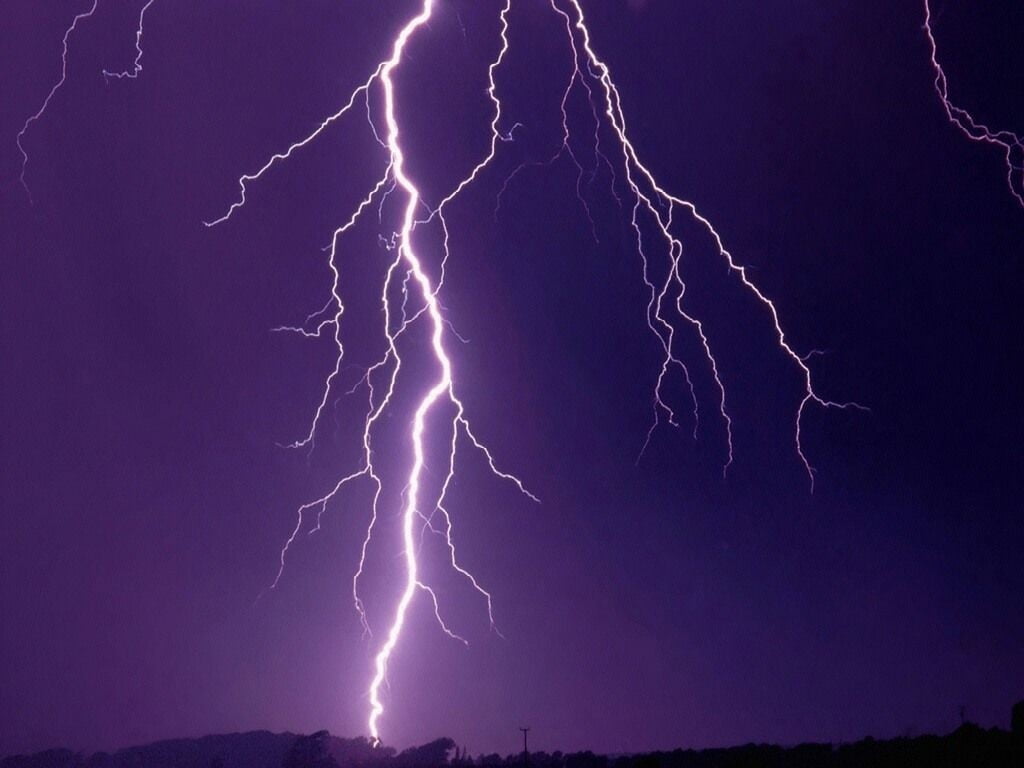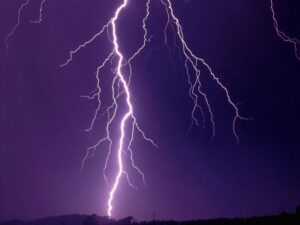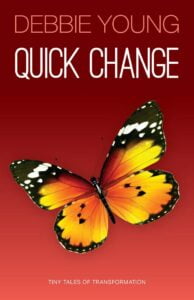In the first of an occasional series defining and celebrating different genres and formats of writing, British author Debbie Young (yes, the same Debbie Young who is commissioning editor of this blog), shares her enthusiasm for flash fiction and explains why she thinks writing flash is a great discipline for authors of all kinds.
As someone who has spent most her career writing relatively brief items, from journalism to press releases and brochures, and as an ardent blogger (323 posts on my author blog at last count), I veer naturally towards short-form fiction when it comes to creative writing.
Although I read a vast quantity of novels, I prefer to write short stories, and until recently I was fixated on the classic word count of 3,000 per story.
But then I discovered flash fiction, thanks to a chance encounter on social media with National Flash Fiction Day, founded two years ago by British university lecturer and author Calum Kerr, and I quickly came to embrace what seemed at first glance an impossibly restrictive format: typically anything from 75 to 1,000 words, and sometimes even shorter.
Quick as a Flash to Read
Flash fiction is not new: people have long been writing stories of this kind and calling it various other names, such as micro-fiction, ultra-short stories and sudden fiction. Ernest Hemingway, not known for his verbosity, once wrote a classic six-worder which is often quoted as the perfect example of such economic writing:
BABY SHOES
For sale. Never worn.
Part of the intrigue of flash fiction is what it doesn't say. Just enough is revealed to engage the reader's imagination and get him or her effectively collaborating with the author to fill in the back-story and the detail. Ironically one could write lengthy essays explicating such short stories. There is power in such brevity.
Why Now is a Good Time to Write Flash Fiction
So why the renewed interest in flash fiction now? It's an ideal form for the digital age, in which more people are reading on smaller electronic screens, and in which wide access to the internet makes it easy to download and read short fiction in odd moments on the move.
Cynics might also say it's the ideal length to grab the supposed short attention span of modern youth, but I think that's unfair. If you pick up a good flash collection or anthology, it can have the same effect as opening a packet of sweets: you snack on one or two, and before you realise it you've consumed the whole lot at one sitting.
Despite the constraints of its low word count, flash fiction can accommodate satisfyingly traditional story-telling and, if desired, a sneaky twist. It also allows for experimentation, which is easier with a short form than with a novel-length work. Much dazzlingly creative experimental flash is emerging just now.
Personally I prefer flash collections in which the tiny stories are unified by a common theme, whether in structure – as in Helena Mallet's Flash Fraction, comprising 75 stories each of 75 words, or Calum Kerr's Lunch Hour, which riffs on the possibilities of what might happen in that brief midday time frame. In my own new collection, Quick Change, I've placed the stories in ascending order according to the age of the key players, literally from cradle to grave.
Why Write Flash Fiction?
Don't be fooled by the brevity of this art-form. It takes real skill and effort to fit a great story into such a small framework. I believe that writing flash fiction is a very useful exercise for authors who want to practice expressing themselves within a limited word count e.g. journalists and bloggers, and indeed anyone who seeks to tighten up their writing in any form, eliminating superfluous words and cutting to the chase. That'd be just about any kind of writer: novelists, non-fiction authors, business executives. I write across a range of other genres, including self-help books for authors, memoirs and travelogues, and I am sure that my new-found passion for flash will help me write better in all of those genres.
It's ironic that when writing more words each day is often perceived to be an essential step on the road to selling more books, the key message of this small-but-perfectly-formed genre is that less is definitely more. It's also very satisfying, when you're bogged down in a book-length work-in-progress, to take time out to write, hone and perfect a piece of work that will fit on a single page.
So while I plough on with longer book projects, I'm hooked on flash. I hope you'll want to give it a try too.
Debbie Young's new flash fiction collection, Quick Change, was published to mark National Flash Fiction Day 2014. One of her stories was selected for this year's official NFFD anthology, Eating My Words, and another for the online anthology, Flash Flood Journal. You can find free samples of her flash stories at her author website here: Debbie Young's Free Flash Fiction .
“What is #flash fiction and why should you write it? by @DebbieYoungBN via @IndieAuthorALLi: www.selfpublishingadvice.org/flash-fiction/”









[…] Writing: What is Flash Fiction and Why Write It Now? […]
[…] Sourced through Scoop.it from: https://www.selfpublishingadvice.org […]
Hi this is a superb post. I’m going to e-mail this to my buddies. I stumbled on this while browsing on google I’ll be sure to come back. thanks for sharing.
[…] fiction (also sometimes called microfiction, sudden fiction, very short story, and discussed in my previous post here) – up to 1000 words (sometimes up to 500 in the […]
I came across this post when trying to answer a question. I know what flash fiction is but I’ve never really understood why anyone would write it. Now I have a much better grip on the why. I may have to try my own hand at it and put some up on my blog.
Thanks for this post!
I’m very glad about that, Eric – I’m sure you’ll have fun writing some!
I have been fortunate to live in a city where the weekly arts and entertainment newspaper has run an annual flash fiction contest for over twenty years.
So, in 1996, I entered their 96 Word Short Story Contest for fun. In 1997, I entered their 97 Word SS Contest and won. Then two years and ninety nine words later, I scored a third place in the contest and I was hooked. After 2001, I had four more flash fiction stories printed in their now annual 101 Word contest.
The contests taught me early on in my career to always practice two very important tenets when writing fiction, ‘less can be more,’ especially for your readers, and the fact that ‘the writing is always in the rewriting.’ Flash fiction has proven to be a valuable tool and skill in my development as a fiction writer.
As you said, “It takes real skill and effort to fit a great story into such a small framework.” But, I will vouch that it is worth every bit of practice.
http://www.montereycountyweekly.com/news/local_news/article_a4ed0dc9-58b7-5c9c-ad04-1a7d05b067ef.html
Gosh, that sounds fun, Will – what a great paper to do that! Congratulations on your flash fiction successes. I love your phrase “the writing is always in the rewriting”, with which I heartily agree.
Hi Debbie, I write a daily blog, where I select one of my photos ( I am a photographer first and foremost) and then write anywhere from 350 to 1200 words about it. I attempt to write in different styles depending on what inspiration I get from the photos. I’m looking for a site that I might submit some of my postings to that would also include the image as they are interconnected and work best when shown together. I’m approaching 400 posts and would like to show my work to a wider audience.
I found you while researching flash fiction and thought you might have some ideas. There doesn’t seem to be much information available for this kind of hybrid writing. Any help you might provide in this endeavor would be greatly appreciated. Even if it is “Don’t give up your day job.” Thanks.
Hi Dwight, that sounds a really interesting way of working. I’ll hop over to your blog to take a look and give you some feedback over the weekend. Thanks for getting in touch.
Hi Debbie: I have not heard of “Flash Fiction” unitl I read your post. I have been writing in this fashion for many years as an ad-man, copy writer and producer. Learnng screenplay techniques is an excellent system. t write tight. I am currently adapting e-novels from my screenplays that average 120 pages. That’s considered to be two hours on the
screen. Fast, fun reads.
Great Post… Thanks.
Warren.
Thanks, Warren. I’m constantly surprised that flash fiction isn’t better known as a genre – even though I only really heard the term myself for the first time a couple of years ago. It is such a natural fit for people like us who have done a great deal of writing for business purposes in our careers.Tight writing is very satisfying both to write and to read. I hope you get even more enjoyment out of it now!
Goodness ‘Narrative poetry mentioned twice in a single blog! Things are looking up.
To cap Hemingway’s tragic six worder I liked USED GRAVESTONE
Suit family named O’Reilly.
Well, we do try, Philippa! 😉
And I love “Used Gravestone”! There’s also a great book of very short flash called “Life’s Too Short for Long Stories” by Bart van Goethem, which includes a story called “Memoirs of an Uninteresting Man” beneath which is a blank page. All good fun!
I don’t write flash fiction (yet), having veered towards the 200,000 word novel end of things but self-pubishing is changing what and how I write … and I’m definitely going to give it a go. I’m interested in the intersection with narrative poetry, which is a sub-genre of flash fiction, maybe. Certainly the shorter the form, the more alive we have to be to word use. Those of you writing it already may be interested in this competition: http://worldsbeststory.com/en/ Looking forward to reading your book, Debbie! 🙂
Thanks, Orna. I think you’re right about its overlap with narrative poetry. One of my beta readers also flagged up a connection with pop song lyrics, which hadn’t occurred to me before. She compared one of my stories to a Kirsty MacColl song, which made me very happy! One of the great things about flash is that it is so fluid – you can mould it to whatever you want to write, really.
I love flash fiction. I write it all the time. It’s a challenge to write a complete story in a limited no of words. And the discipline is helpful when it comes to writing novels – flash fiction teaches how to get to the point without wasting words. JJ
You’re right, JJ, the discipline is invaluable, whatever else you write. I’ve not written any novels yet, but I’m sure that if I ever do, they will be all the better for my experience of writing flash. By the way, I’ve read and enjoyed a few of your flash stories!